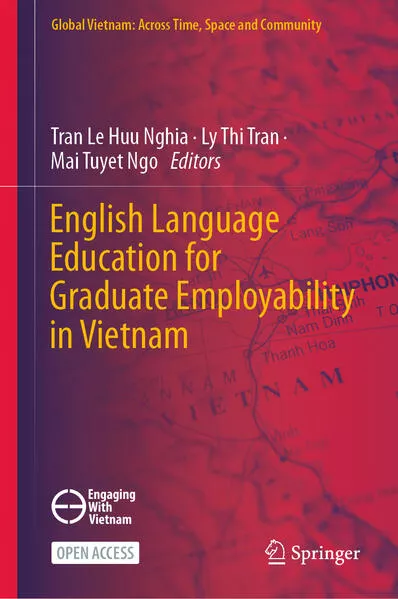
- Publikationen ca: 3
- Fragen & Antworten
Tran Le Huu Nghia
Dr Tran Le Huu Nghia is a research fellow in work-integrated learning and graduate employability at the Australian National University’s College of Business and Economics. He received the Erasmus Mundus scholarship to complete the Master of Lifelong Learning: Policy and Management (2007-2009) provided by Aarhus University (Denmark), Bilbao University (Spain), and Institute of Education (the United Kingdom). Then as an Endeavour Postgraduate Awardee (2012-2016), he completed his Ph.D., with a focus on higher education studies, at the University of Melbourne, Australia. He has produced more than 30 research outputs, including articles in high impact journals such as Higher Education, Teaching and Teacher Education, Teaching in Higher Education, and two books. His research interests include teaching and learning for employability, work-integrated learning, teacher education, international education, and teaching English as a second language.
Dr Ly Tran is a Professor in the School of Education, Deakin University, Australia. Her work focuses on the internationalisation of education, student mobilities, graduate employability, staff professional learning in international education and Vietnamese education. Ly has been awarded various fellowships, prizes and awards for her contribution to research in the fields of international education and student mobilities. She has been named as one of Vietnam’s 50 Most Influential Women 2019 by Forbes Vietnam (Research Category). She has more than 200 publications in different outlets and has won a range of national and international awards for her works.
Dr Mai Ngo is a Senior Lecturer in Teaching English to Speakers of Other Languages (TESOL) and Applied Linguistics at Flinders University, Australia. She was Dean of Foundation Studies Department from 2005 to 2009, and Director of the International Education Center in Hanoi University, Vietnam, in 2014 and 2015. She has been working actively as an English Language Teacher educator and a senior consultant in Vietnam’s nation-wide Foreign Language Education reform projects. Mai graduated with a Doctor of Philosophy in Education from the School of Education, the University of New South Wales, Australia, in 2014. She received the New South Wales Institute of Education Research’s Beth Southwell Award for Outstanding Doctoral Thesis in October 2014. She also received the CAMTESOL Innovation Award in 2009. Her research interests include English language education reforms, English language teacher education innovation, English language teaching/learning for university success, and university governance.
English Language Education for Graduate Employability in Vietnam
This open access book examines the teaching and learning of English for employability in Vietnamese higher education. Its content is framed within one country to better examine the research issues within the influence of contextual factors. This book investigates how English can contribute to the development of students' employability capitals, particularly in the aspects of human capital, social capital, cultural capital, identity capital, and psychological capital.
English Language Education for Graduate Employability in Vietnam
This open access book examines the teaching and learning of English for employability in Vietnamese higher education. Its content is framed within one country to better examine the research issues within the influence of contextual factors. This book investigates how English can contribute to the development of students' employability capitals, particularly in the aspects of human capital, social capital, cultural capital, identity capital, and psychological capital.
English Language Education for Graduate Employability in Vietnam
This open access book examines the teaching and learning of English for employability in Vietnamese higher education. Its content is framed within one country to better examine the research issues within the influence of contextual factors. This book investigates how English can contribute to the development of students' employability capitals, particularly in the aspects of human capital, social capital, cultural capital, identity capital, and psychological capital.


